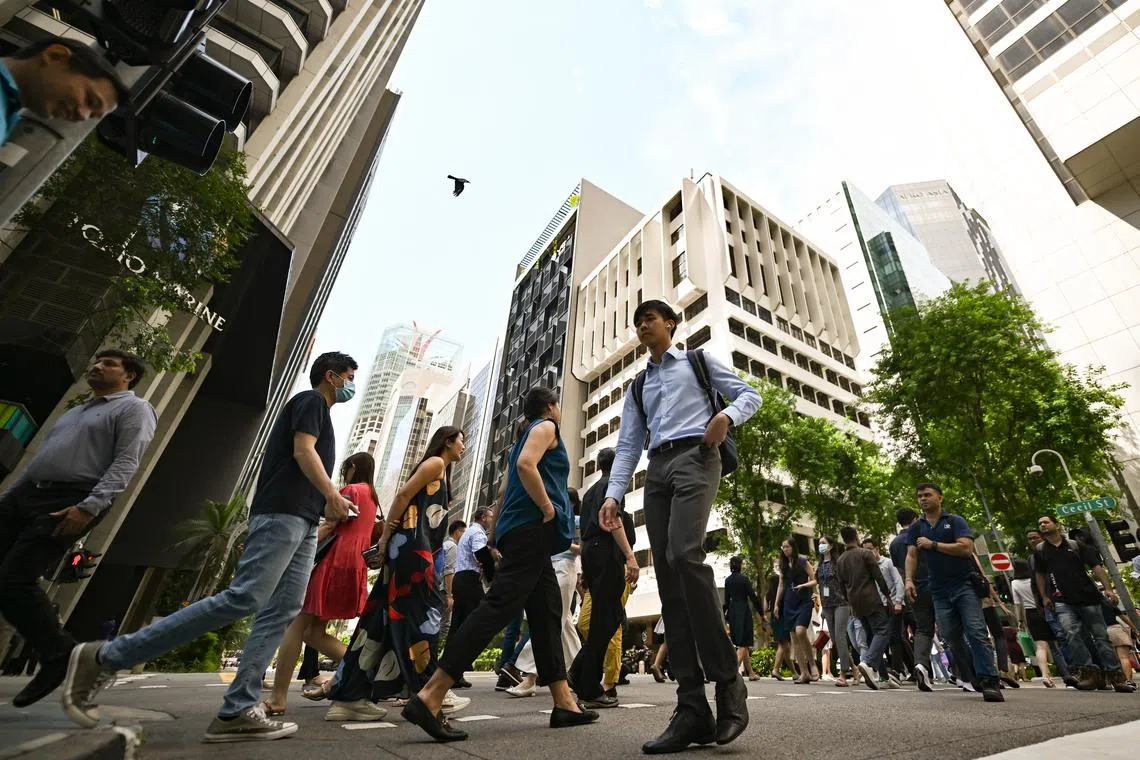Singapore’s workforce among world’s most skilled: Insead
Sign up now: Get ST's newsletters delivered to your inbox

Singapore made it to the top three in four of the six criteria of the annual Global Talent Competitive Index.
PHOTO: ST FILE
SINGAPORE - Singapore’s workforce stands among the world’s most proficient in terms of management, vocational and technical skills, according to a report.
The annual Global Talent Competitive Index, published by French business school Insead in collaboration with Descartes Institute for the Future and the Human Capital Leadership Institute, covers 134 countries and ranks them according to how well they attract, develop, support and retain talent.
Singapore made it to the top three in four of the six criteria, which includes enabling, attracting, growing and retaining talent, vocational and technical skills, and global knowledge skills.
It ranked first in global knowledge skills, which includes management and communication abilities, and third in vocational and technical skills.
In terms of overall country rankings, the Republic kept its second-place standing from last year, with Switzerland still in top position and the United States replacing Denmark in the third spot.
Dr Bruno Lanvin, Insead distinguished fellow and co-editor of the report, told The Straits Times that Singapore ranked highly in the criteria, as the country had one of the best education systems in the world. It has also been able to implement “coherent” economic strategies and align its human resources accordingly.
The report also found that Singapore’s “main weakness” lies in its ability to retain talent, where the country is ranked 38th.
Dr Lanvin said this is mainly due to the small size of the economy, where workers might find it hard to advance their careers, compared to larger economies. He added: “For Singapore, this is not necessarily a huge handicap, as the country can benefit from ‘brain circulation’ – the constant flow of new talents attracted by gaining experience in Singapore, even if they stay only for a few years.”
When asked how Singapore can compete with other countries to retain talent, Dr Lanvin pointed to other small economies such as Switzerland and the Nordic nations which have been able to do so by offering a higher quality of life.
On a global scale, the report noted that the Covid-19 pandemic has “deeply altered” the global talent landscape, and that talent inequalities remain high in countries.
“Poorer economies do not perform as well on the talent scene as richer economies have. Despite significant progress made by some of the largest emerging economies, such as India and China, the wealth and talent correlation remains strong,” it said.
The report also highlighted that emerging technology, such as artificial intelligence (AI), may affect both skilled and highly-skilled workers. It added that there is an increasing proportion of “new generations”, which do not necessarily prioritise high-demand skills.
“Many look for meaningful jobs where they can contribute to society or desire a healthier work-life balance. Gigs and short-term contracts have also become the new norm for a growing number of workers,” it said.
Human Capital Leadership Institute chief executive Doris Sohmen-Pao said: “We imagine the next decade will see more visible changes in the rankings – with countries in Asia advancing in competitiveness mirroring growth across the industry.
“This increase in the ability to attract, retain, and grow human capital should be seen as a win for all.”



